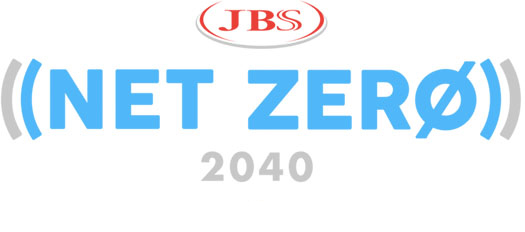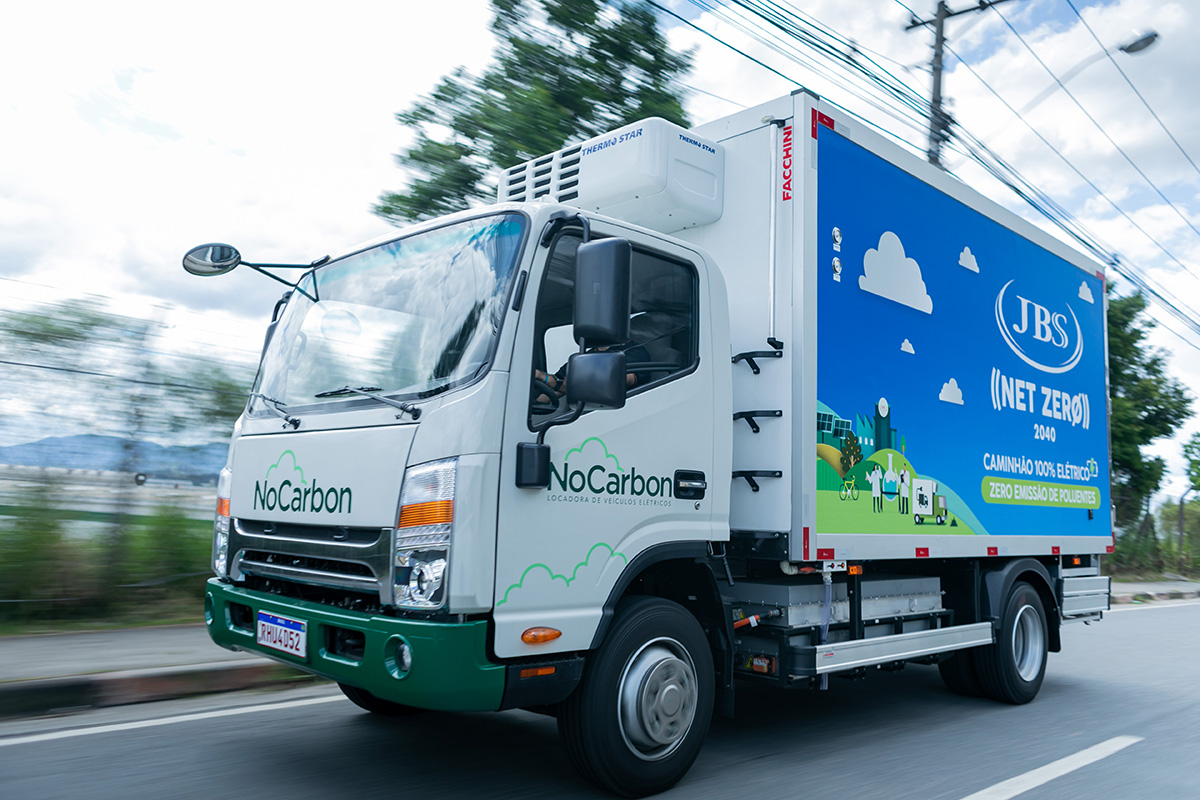Our Environment

Climate
Slowing down climate change is one of society’s greatest challenges. It is also one of the main long-term risks faced by the agricultural supply chain and dependent industries. We must all act urgently to limit global warming to 1.5°C and combat its negative effects. As a global diversified food company, we have an opportunity – and responsibility – to leverage our scale and influence to help lead sustainable transformation by example and empower our value chain and peers to collectively move forward.

In March 2021, JBS was the first global meat and poultry company to pledge to achieve net-zero greenhouse gas (GHG) emissions by 2040, ten years ahead of the deadline set by most companies and governments around the world. Now, we are working to transparently share how we intend to achieve these reductions in our absolute scope 1, 2, and 3 emissions, while continuing to sustainably grow our business and meet the increasing global need for safe, affordable access to high-quality food.
To bolster our pledge and encourage immediate action, we have adopted several near-term targets to achieve reductions in emissions, including reducing our scope 1 & 2 GHG emission intensity by 30% by 2030, and reaching 60% renewable electricity by 2030 and 100% by 2040.
In 2023, we are working to develop a robust Net Zero Roadmap that outlines our priorities and guides our actions over the next 17 years. It will be iterative and flexible to allow our businesses to design and implement strategies best suited for their specific operations.
Starting this process meant taking inventory of the challenge in its entirety. For 13 years, we have measured, monitored, and estimated our direct and indirect GHG emissions by scope 1 and 2 categorizations to be voluntarily reported to GHG Protocol¹, CDP, regional regulatory frameworks, and more. In 2022, we expanded our approach by carrying out the first-ever comprehensive analysis of our company’s global GHG emission inventory, inclusive of all relevant emissions, in alignment with GHG Protocol methodologies. The analysis showed that, similar to other food and agriculture companies, the majority of our footprint is made up of indirect scope 3 emissions from activities in our supply chain such as livestock and grain production or product distribution and consumption. This presents a significant challenge because these emissions are not directly related to JBS’s operations and management. Instead, they are part of the emissions produced by hundreds of thousands of individual farming operations growing agricultural commodities and millions of consumers eating food. However, we also see this as a major opportunity to engage our suppliers, food system partners, and consumers on how we can collectively take action to address our shared GHG footprint and improve the resiliency and productivity of the global food system.

While we continue our focus and actions to reduce GHG emissions from our facilities, in particular we will be expanding our capabilities and partnerships to catalyze action in our upstream supply chain. Given the size and complexity of this shared footprint, we will utilize a comprehensive and company-wide approach to working with our suppliers and customers and pursue several parallel measures to address our shared food system’s emissions, including:
• Data measurement and reporting:
• Deforestation:
• Strategies and interventions for each protein:
• Supply chain collaborations:
• Sourcing strategy:
Our company culture has always promoted on-the-ground collaboration over off-site enforcement, and we strive to build our scope 3 reduction initiatives around the fundamental need to improve both the environmental and financial performance of our supplier partners. We prioritize using a just-transition approach to advancing the sustainability of our global food production systems, always remembering that success would not be possible without the people taking action.
In tandem with the implementation of our scope 3 emission reduction strategy, we are maintaining our efforts to decrease scope 1 and 2 emissions in our own facilities by employing four primary means, which are described further on our Energy Management page.
Global GHG Emissions by Scope (tCO2e) |
||||||||
| 2019 | 2020 | 2021 | 2022 | |||||
| Scope 1¹ | 3,971,569 | 3,912,571 | 4,376,827 | 4,045,137 | ||||
| Scope 2² (Location Base) | 1,692,410 | 1,547,699 | 1,807,372 | 1,605,115 | ||||
| Scope 2³ (Market Base) | 1,731,526 | 1,551,270 | 1,752,367 | 1,513,548 | ||||
Global GHG Emission Intensity by Scope
|
||||||||
| 2019 | 2020 | 2021 | 2022 | |||||
| Scope 1¹ | 0.203 | 0.199 | 0.215 | 0.202 | ||||
| Scope 2 (Location Base)² | 0.087 | 0.079 | 0.089 | 0.080 | ||||
| Scope 2 (Market Base)³ | 0.089 | 0.079 | 0.086 | 0.075 | ||||
| Scope 1¹ and 2 (Market Base)³ | 0.292 | 0.278 | 0.301 | 0.277 | ||||
¹Includes emissions from stationary combustion, mobile combustion, agriculture, waste, and effluent, and fugitive and process emissions in JBS-owned facilities.
²Includes emissions from purchased electricity, steam, heat, and cooling. Purchased electricity is calculated using location-based methodology.
³Includes emissions from purchased electricity, steam, heat, and cooling. Purchased electricity is calculated using market-based methodology.
In 2020, JBS committed to set near- and long-term GHG emissions reduction targets and to pursue validation of those targets from the Science Based Targets initiative (SBTi). As JBS progressed and neared completion of estimating its GHG inventory and setting reduction targets, in late September 2022, SBTi released its Forest, Land and Agriculture (FLAG) Science Based Target-Setting Guidance. We are currently reviewing this updated methodology and its impact on our planned submittal to SBTi. Regardless of the evolving methodologies from third-party verifiers, JBS remains dedicated to setting and independently verifying near- and long-term GHG emissions reduction targets based on sound science.
In addition, we are currently updating our global scope 3 GHG emission footprint against the newly released FLAG Guidance and draft GHG Protocol Land Sector Removals Guidance. (GRI 2-4)
We applaud the efforts of our team members who have worked diligently to reduce our environmental impact. We are pleased to report that our team has reduced our global scope 1 and scope 2 GHG emissions by 9% from 2021 to 2022 across both location-based and market-based scope 2 calculation methods. In addition, we reduced our scope 1 and scope 2 GHG emissions intensity by 7% (location-based) and 8% (market-based) year over year. Collectively, we have reduced scope 1 and scope 2 emissions intensity by 5% (marked-based) in comparison to our 2019 goal baseline.
Looking ahead, we will continue to deploy operational improvements to increase efficiencies and reduce GHG emissions in our own operations while expanding our efforts to reduce and remove scope 3 GHG emissions throughout our value chain.
